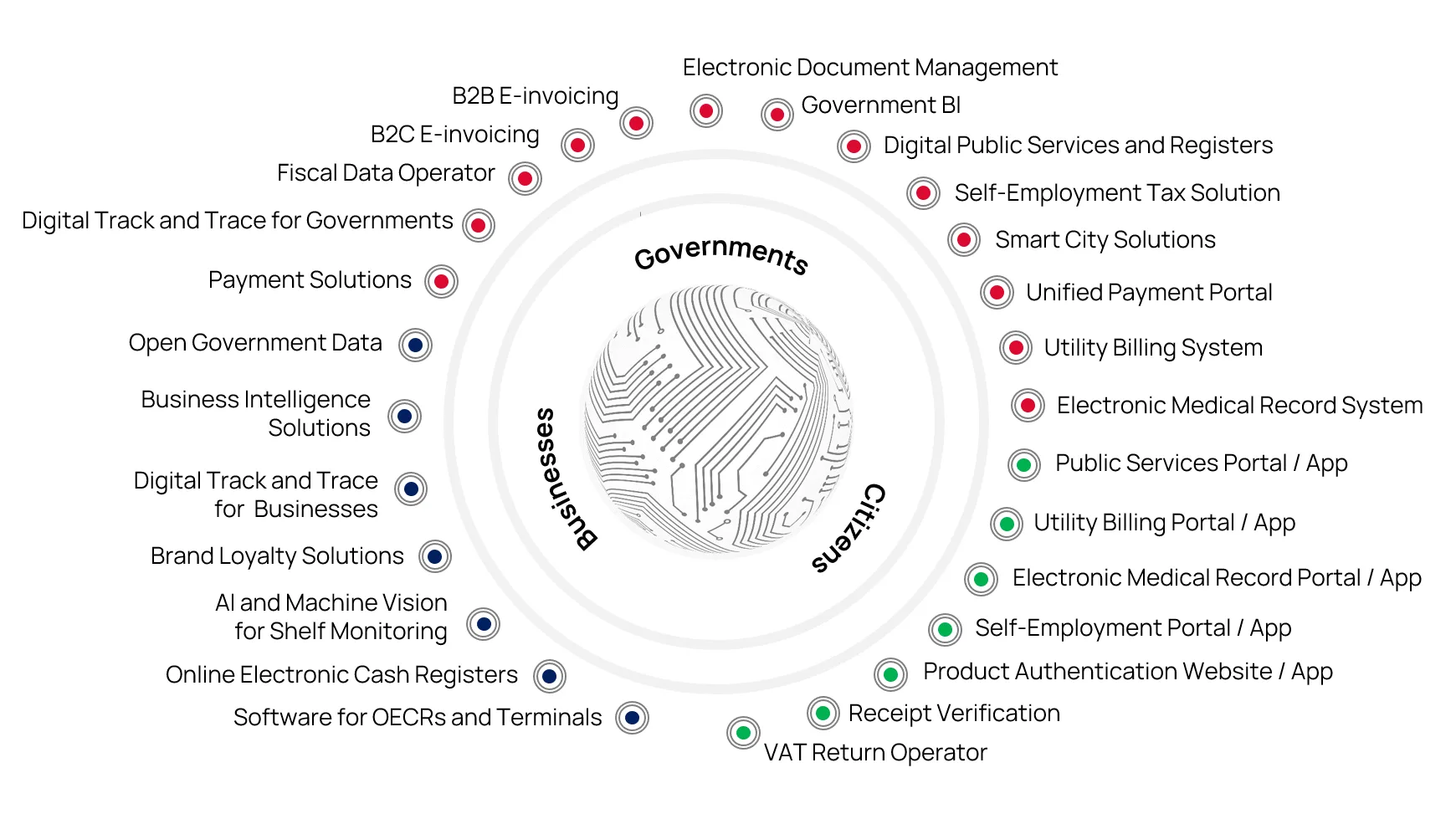Advisory
Where Should Countries Start Their Digital Transformation Journey?

Successful digital transformation and revenue growth... Many countries around the world constantly strive for that while trying to come up with efficient solutions.
As someone who has worked with various emerging markets, I’m often asked the same fundamental question by policymakers and leaders:
“Where should we start our digital transformation journey?”
And sure, it’s an important question — because digital transformation is not just about adopting the latest technologies. For developing countries, it's a strategic pathway to overcoming traditional development barriers, unlocking economic potential, and delivering better public services to citizens. Overall, there’s a lot to say when it comes to the question “Why do countries even need digital transformation?”, and I’ll elaborate on that in a separate post, as it’s a great topic on its own.
Digital transformation can’t happen all at once and in the exact same way for different countries. Let me explain why.
Each country is at its own development stage
All countries are different, which is why there’s no solution that would fit every single one of them.
For instance, some countries have already fully or partially implemented systems like B2B and B2C E-Invoicing, while others have not. And sometimes the implementation doesn’t go the way it’s supposed to.
Ethiopia’s case is a good example of that: while it was one of the first countries that implemented B2C E-Invoicing, its tax collection in the B2C sector is still not as efficient as it could be. There can be multiple reasons for that, including unspecified or uncoordinated data formats used by different vendors.
Turns out, being the first to implement digital transformation technology won’t bring your country value unless you do it the right way, which leads to my next point.
“Where to Start?” Is Not as Important as “How to Do It?”
Another example: let’s imagine that some country decided to start their digital transformation journey from Track and Trace and implemented such solution. However, after some time, it became clear that it doesn’t help the government meet its goals all that much.
What to do next?
For instance, Turkey implemented a Track and Trace system, but illicit trade in the country became even more widespread and their tax collection decreased.
Some paradox, right? Why did it happen?
The truth is, while Track and Trace is an important system that helps solve a good number of problems, it won’t be effective without a proper strategy.
The implementation of Track and Trace or any other digital transformation product should be led by an expert team that understands a country’s needs and requirements.
And any country has a wide range of tasks that must be accomplished.
If a Track and Trace solution is not connected to a country’s tax authority information system and doesn’t include electronic document management and other important components, it will definitely do more harm than good.
At traceCORE, We Carefully Assess Countries’ Goals and Potential Risks
If we talk about Track and Trace, our team understands that it’s not only important to protect the market from illicit trade, but also to track the link between all parties from manufacturers to consumers and to take note of every move.
.webp)
That link between parties can quickly become unprofitable if even just one of them doesn’t pay VAT.
Therefore, if a Track and Trace system is implemented with meaning and supervised by a country’s tax authorities and ministry of finance, it’s possible to achieve synergy.
Why Is Synergy So Important During Digital Transformation?
Imagine: you have implemented a Track and Trace solution in your country. What now?
Digital tax stamps have to be recognized countrywide, which means that all cash registers must be a part of a unified system. If that’s not the case, it will be impossible to control the output of goods at points of sale.

That is why countries should implement a Track and Trace solution from start to finish, without missing any steps, as all of them are equally important.
A Track and Trace system MUST involve all parties: manufacturers, importers, retailers, resellers, and end consumers. Moreover, it’s important to track the movement of products online in real time and transmit information to tax authorities to ensure correct VAT calculation. Only then a solution like that will work the way it should.
Starting from Track and Trace Is a Good Idea. However…
If a country is at the very beginning of its digital transformation journey, then sure, starting with a Track and Trace solution would be very beneficial.
But it will work only if you can see your end goal very clearly. Which, again, comes down to assessing your country’s needs and requirements.
In case a country doesn’t have any long-term prospects while implementing Track and Trace, it will have the opposite effect, doing harm to businesses. It will only complicate manufacturing and sales.
However, a Track and Trace solution that is implemented in the right way will bring added value, that’s for sure.
.webp)
As a result, the government will have better control over suppliers, sellers, and buyers, as well as receive additional income in the form of VAT or sales tax. It will also be possible to collect excise tax and control the movement of excise goods much more effectively. Moreover, the collection of corporate tax will significantly improve too.
All parties will only benefit from these changes:
Manufacturers
Will be protected from illicit trade and their legal businesses will thrive.
Retailers
Will simplify and automate their processes, while being transparent with their customers about the origins of the products they sell.
Consumers
Will be able to easily check the quality and authenticity of products.

Why Choose traceCORE as Your Digital Transformation Advisor
No matter what technology you choose to implement first, the most important thing is that it should be done by a team of professionals who understand your country’s strategy and goals. If at least one of the stakeholders won’t benefit from the solution, the system won’t work.
traceCORE is exactly a team like that — experts who pay close attention to each country’s goals. We provide digital transformation advisory and software solutions for policymakers across the world with the aim to help countries generate more revenue.
Moreover, we work with countries that are at various stages of their development, offering custom packages to each client.
traceCORE product ecosystem consists of a great number of digital solutions.
Our experts identify weak spots in countries’ economies and offer the quickest and most effective options, specifically tailored to each case.

To learn more, visit the main page of our website to check out our products. If you have any questions, don’t hesitate to contact us.
Digital transformation is a journey, not a sprint. With the right vision and partners, even the most cash-constrained nations can take a leap into the digital future — and bring their citizens and economies with them.
